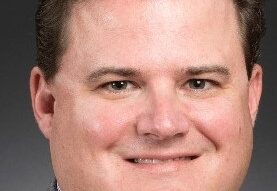Your CRE professional does what?A look at the hobbies of some of the Midwest’s most successful commercial pros
By Dan Rafter, Editor
We all have hobbies. But do you play trumpet in a wedding band? Do you race cars? Are you an avid beekeeper?
Maybe not. But commercial real estate professionals across the Midwest claim all of the above hobbies, and more.
Here’s a look at what some of the top commercial pros in the Midwest do in their time out of the office. Read carefully: You just might find your new hobby in this list.
Craig FrancoisVice president, director of operationsKraus-AndersonMinneapolisHobby: Beekeeping
For the last five years, Craig Francois has kept bee hives. He now maintains seven of them, six on a family farm and one on the grounds of the Catholic church he attends.
“I’ve always been interested in conservation,” Francois said. “I read about a bee problem. Then we were at a state fair about six years ago and there was a bee exhibit there. That following march, I took a beekeeping class at the University of Minnesota. I was hooked.”
Today, Francois’ bees have become a part of the family. Every year on the Saturday before Labor Day, Francois’ children – and their children – show up at the farm that Francois owns in Northeast Iowa. Together, they harvest the honey from the hives.
Last year, the family members, along with several members of the local community, harvested about 250 pounds of honey.
“We call it Sticky Saturday,” Francois said.
Not all the younger children are bee fans, though. Francois said some of the children are drawn to the hives. Others stay back.
“It is funny how certain nieces and nephews say they aren’t going near those hives,” Francois said. “The next one, though, will say, ‘Suit me up. I want to go out there.'”
That, of course, brings up the obvious question: Has Francois been stung by his bees?
“Oh, yeah,” Francois said. “I’ve probably been stung 25 to 30 times. Sometimes I don’t suit up and just stick my head in the hive. Invariably, you get whacked. If I’m not taking the time, if I’m rushing it, I’ll get stung.”
Then there’s the second obvious question: Does Francois get used to getting stung?
“No. It still hurts,” he said. “You just learn to accept it, I guess.”
Trent WieringaAssociate broker, industrial teamColliers InternationalGrand Rapids, MichiganHobby: Barefoot waterskiing
Waterskiing is hard enough. How about doing it without the water skis?
That’s what Trent Wieringa and most of his family members do each summer. The sport of barefoot waterskiing is a favorite in the Wieringa family.
“It’s kind of been a family tradition,” Wieringa said. “It’s something all my uncles and my father, brother, mom and my whole family grew up doing. I’ve been waterskiing since I’ve been three and I’ve been barefooting since I was around 9 years old.”
What is so enticing about waterskiing without the actual skis? For Wieringa it all comes down to adrenaline.
“There is an undeniable adrenaline rush to this,” he said. “A lot of brokers are adrenaline junkies. You are going 40 miles an hour and skiing on nothing but your bare feet. There is an undeniable rush to doing that.”
Barefooting takes practice. Wieringa said you typically start a run by lying in the water on your back. As the boat towing you picks up speed, you move up to where your butt is skimming the water. Then you stand up. This is when you kick off your first water ski. After riding on just one ski, you kick that one off.
Then you’re barefooting.
“Doing this is one of my favorite ways to spend time with family and friends,” Wieringa said. “It’s a way to get out on the water and relieve some of the stress of your daily life. It’s a good break from the hustle and bustle of brokerage.”
Mike VisserAssociate, investmentColliers International|West MichiganGrand Rapids, MichiganHobby: Bonsai trees
Growing and maintaining miniature bonsai trees – all the work that goes into pruning and trimming them to keep them small enough to live in their pots – requires patience and an eye for detail.
But the art of growing and maintaining bonsai trees also brings a big reward: It’s one relaxing and soothing hobby.
Just ask Mike Visser with Colliers International|West Michigan. He has been growing bonsai trees for about seven years.
“I’ve always enjoyed plants and nature,” Visser said. “I worked landscaping jobs growing up. The art of designing landscaping always intrigued me. Laying it all out has always been something that interested me. It’s like living sculpture that evolves over time. And that’s how bonsai trees are. They will be with you your entire life. Bonsais have lived to be 400 years old.”
Visser also enjoys the creativity that goes with raising bonsai trees. Everyone trims and shapes their bonsais in a different way.
“Give 10 people the same tree and you’ll get 10 different takes on what it should look like,” Visser said.
Today, Visser maintains five bonsai trees. He waters and works on each of them at least two times a month. Sometimes this work just involves basic watering. Other times, Visser spends time training his trees with water so that grow in a certain direction. He might spend time giving his trees a quick trim or devote much of a day to serious ornamental work on his trees.
“There is a reason why there is such a strong bonsai culture here,” Visser said. “It is one of the most relaxing, peaceful and enjoyable hobbies I can imagine.”
Britt CaseyExecutive director of industrial servicesCushman & WakefieldChicagoHobby: Auto racing
Simply put, Cushman & Wakefield’s Britt Casey loves speed. It’s no surprise, then, that he races sports cars when he’s not closing industrial deals.
Casey races in the Trans Am series. And his son, Britt Casey Jr., has a passion for racing, too. He races professionally in the IMSA Continental Tire Sportscar Challenge, a national sports car racing series owned by NASCAR.
Casey, in addition to competing in the Trans Am series, spends plenty of time managing his son’s professional racing car, one that is definitely on the rise. Casey Jr. races for Freedom Autosport, headquartered in Atlanta.
“These days, I don’t get to race as often as I’d like,” Casey said. “Because I have a real job, a family and my son’s career to manage, I don’t race in all of the races in my series. But when I do get a chance to race? I truly enjoy it.”
Casey has been a car fan since his high school and college days, when he worked as a paid mechanic on a team that raced stock cars. He worked with this team for eight years, starting when he was 17.
“I was traveling the countryside with them,” Casey said. “It was definitely pretty cool.”
About 10 years ago, Casey bought his own race car. He rebuilt it so that he could compete in the Trans Am series.
“This is obviously a sport for speed junkies,” Casey said. “You are driving as fast as you can around a track. The adrenaline rush that goes along with that is incredible. It also affords me a little bit of a break from the day-to-day of corporate real estate. If you are driving a car at 175 miles an hour, it demands 100 percent concentration. It’s not like you’re driving down the expressway and your mind is wandering.”
Casey’s son, Britt Casey Jr., just turned 18 in March. He is the youngest competitor in his racing series, and has been racing professionally since turning 15. In his first season of racing, he won eight races.
“Him getting into racing is definitely my fault,” Casey said. “But he’s always loved it. I certainly didn’t have to twist his arm.”
Casey admits that his racing record isn’t as impressive as his son’s. Casey calls himself a solid but not spectacular racer, due mostly to the time constraints involved in selling industrial real estate, spending time with his family and managing his son’s own racing career.
Laurie GlaserSenior administrative assistantKraus-Anderson CompaniesMinneapolisHobby: Trumpeter with two local bands
Kraus-Anderson’s Laurie Glaser has been playing trumpet nearly all her life, first picking up the instrument as an elementary school student. Today, she plays in two Minneapolis-area bands, PopLuxe and The Sevilles, providing the music for local weddings and corporate events.
“We play all kinds of music,” Glaser said. “We’ll play whatever the client wants to hear. It’s a fun hobby. It keeps me busy all year round.”
Music has always been a passion of Glaser’s. Getting the chance to play across the Minneapolis region? Glaser says the thrill of entertaining never disappears.
“Music is something that I have always loved,” Glaser said. “Growing up, all through school, all my life, I have been involved with music. It is nice to be able to continue to do that as my non-Kraus-Anderson activity.”
Playing at weddings and corporate events means that Glaser and her bands get to play a variety of music, everything from swing and big band to modern pop tunes.
For Glaser, that’s the perfect recipe.
“I have always been a fan of all styles of music,” Glaser said. “I can’t lock into any one specifically as being the best. It’s nice to have that option to play all different kind of styles.”
So if you’re getting married in the Twin Cities area, or if your company needs entertainment for a corporate event, be sure to check out PopLuxe and The Sevilles. If Glaser has her way, the two bands will be playing tunes throughout the area for a long time to come.
“I look forward to doing this for years and years,” Glaser said.
Jerry HoffmanPresident, chief executive officerHoffman Strategy GroupLincoln, NebraskaHobby: Scuba diving
Jerry Hoffman traces his newest hobby of scuba diving to a business trip to the Mexican island of Cozumel. A client had sent Hoffman there to craft a market and feasibility study for a possible new water park on the island in the Caribbean Sea.
The hotel offered diving classes. Hoffman took a morning class and was immediately hooked.
When Hoffman returned home, he found a nearby dive shop. He earned his certification two years ago, and has been diving whenever he can ever since.
And that water park? It will move forward. Hoffman’s client expects to start building in December of 2017.
“Scuba diving reminds me of when I was a kid,” Hoffman said. “I lived in New Jersey, and I’d swim in the Atlantic Ocean. I was an active swimmer, too, at the local pool. One of the things I always wanted to do was see how long I could stay under the water without breathing. Now I have the opportunity to do that with diving. It’s realizing a childhood dream of staying as long as possible in the water without having to come up for air.”
Hoffman says that scuba gives him the rate opportunity to see such underwater creatures as nurse sharks, sea turtles and spotted eagle rays up close.
“It is incredible under the water,” Hoffman said. “70 percent of the Earth is water. But it is as undiscoverable for most of us as the moon is. But when you are scuba diving, it is so much more accessible.”
Mike CookSenior vice president, occupier services divisionCBREIndianapolisHobby: Wake surfing
If you’ve never seen wakeboarding, it can be intense. The sport, in which participants ride a wakeboard over a body of water while being towed by a boat, combines elements of surfing, snowboarding and waterskiing. Wakeboarders can pick up significant speed, too, often being towed at speeds of 20 to 40 miles-an-hour.
It’s easy to get hurt wakeboarding. It’s not as easy if you’re wake surfing, instead.
Just ask Mike Cook with CBRE. Cook did wakeboard, when he was in his 20s and 30s. Today, he is in his 40s. Now he wake surfs to protect his body from injury.
Wake surfing starts out like wakeboarding. Participants ride a board while being towed by a boat. But once the boat picks up enough speed and creates a strong enough wake behind it, the surfers let go of the rope and instead ride in the wake.
Instead of traveling up to 40 miles-an-hour, wake surfers typically perform their tricks while going nine to 11 miles-an-hour.
“When we were in our 30s, it was fine to crash while wakeboarding,” Cook said. “As you get older, it gets more difficult to recover from a crash. You can’t get hurt wake surfing. You are going slow enough. Your feet aren’t affixed to the board. You can just jump off the board when you need to.”
Today, Cook calls wake surfing an obsession instead of a hobby. The group with which he wake surfs runs its own Web site. Its members wear their own t-shirts. Group members gather to surf most every morning or every evening during the summer.
“You are always learning new things with this sport,” Cook said. “It is not repetitive. You might be surfing the same way in the same conditions, but your balance is different this time out. Your foot position might be different. You might try different moves that you haven’t mastered yet, that you didn’t master yesterday, last week or last year. It’s great when you’re wake surfing with a group of competitive people. You are always trying to outdo each other.”



